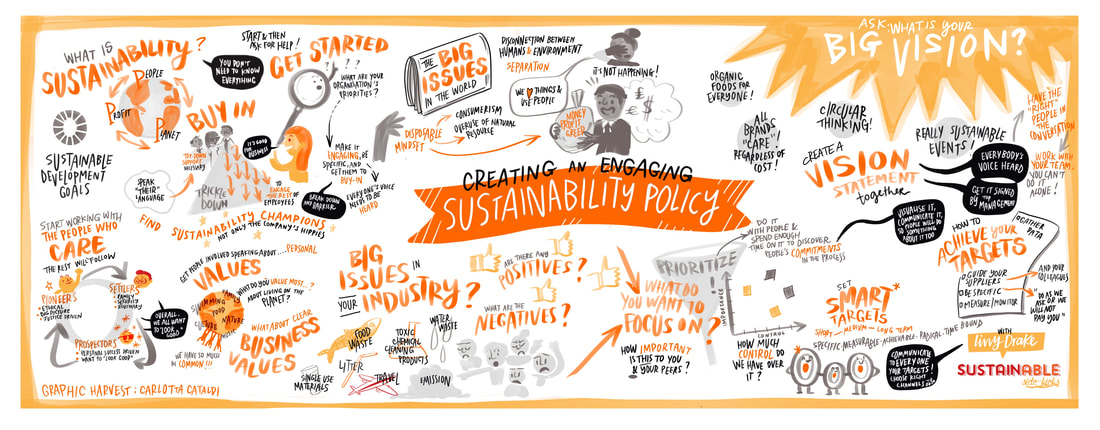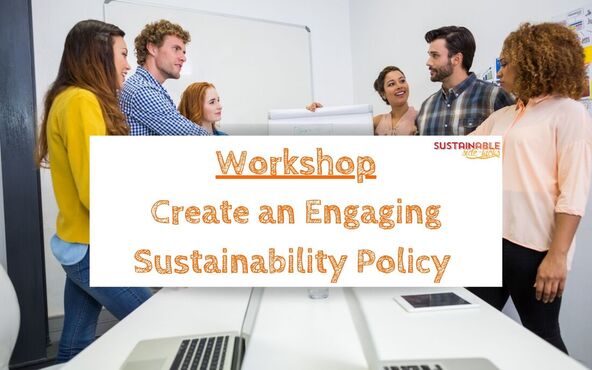What to include in a sustainability policy
Would you like to have a sustainability policy that is engaging for your staff and customers? Read on for our tips on how to do this and what to include.
Here at the Sustainable Sidekicks, we are not fans of the short four-paragraph sustainability or environmental policy. You know the one, that just states the problems that an organisation acknowledges without any specifics on they will be addressed. Of course, a business may well have a comprehensive strategy to back this up, but in a world where people are jumping on the ‘sustainable’ band wagon and greenwash is riff, we feel it’s important that a policy is genuine, specific and reflects the team that is delivering it.
When we create policies with organisations, we do this as a team effort with representatives from across the business, coming together for a meeting or workshop. This is because people will be more committed to something they were part of creating, which in turn leads to more action in delivering on the commitments.
What is the definition of sustainability?
This is a very overused word these days so let’s get clear on what it means:
- Sustainability focuses on meeting the needs of the present without compromising the ability of future generations to meet their needs.
- The concept of sustainability is composed of three pillars: economic, environmental, and social—the 3 P’s – planet, people, profit
What to include in a policyFrom an existing policy (if you have them) or when you go this process you can finesse these:
From a team workshop or a survey: |
|
- Issue statement – what are the core issues you identify as an organisation in the world and your sector
- Vision – what is your vision of a better/ ideal future for your organisation/industry in addressing these issues (the dream)
- Scope of policy – what are the priorities for you as an organisation and the focus areas
- Commitments – what are you committing to do
- Signed by senior management – this is essential to demonstrate the commitment from the top of the organisation. Authority bias is defined in behavioural economics as our natural tendency to follow the leader and attribute greater accuracy to their opinion.
Creating an engaging sustainability policy
If you would like to go through a step-by-step process of creating a policy, sign up for the online workshop. Not only will you come away with the tools and templates to create a policy. You will also be able to:
- Capture your vision, values and concerns
- Identify your priorities
- Create targets and an action plan
- Get buy-in from teams and departments
- Deliver a similar workshop with your team and clients



10% of all online courses go to grassroots charities.
20% of all consultancy and bespoke workshops go for rewilding.
50 free places are awarded to campaigners from underrepresented communities each year.



